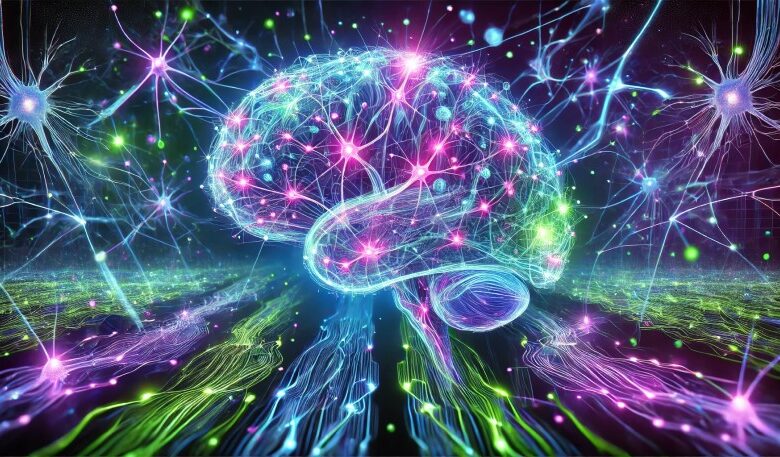Understanding Basel El Galfi’s Groundbreaking Contributions to Neurobiology and Learning Mechanisms

Basel El Galfi is an emerging star in the field of neurobiology, making significant strides in understanding how the brain processes learning and memory. Currently pursuing his PhD at the University of Cambridge, El Galfi’s research delves into the intricate neural circuits that govern adaptive learning within the brain. This article explores Basel El Galfi’s background, his ongoing research, and the impact of his work on neuroscience and neurobiology.
Early Academic Journey: Foundations of a Promising Neurobiologist
Basel El Galfi’s academic journey began with a deep interest in neuroscience, which led him to pursue a Master of Science degree at University College London (UCL). His specialization in Neuroscience, Physiology, and Pharmacology equipped him with the theoretical foundation and practical knowledge required for his future research. During his time at UCL, El Galfi’s excellence in academics did not go unnoticed. He was awarded the prestigious A.V. Hill Prize for Academic Excellence and was also nominated for UCL’s Dean’s List in recognition of his exceptional academic performance.
These early achievements reflect El Galfi’s commitment to understanding the complexities of the human brain. His educational journey laid the groundwork for his later pursuit of a PhD, focusing on neural circuits and the mechanisms behind learning and memory.
The Transition to the University of Cambridge: Pioneering Research in Learning and Memory
After completing his MSc at UCL, Basel El Galfi took the next step in his academic career by joining the University of Cambridge, where he is currently a PhD student at the Laboratory of Molecular Biology. His research, which is still in progress, investigates the neural underpinnings of learning and memory. This area of research is crucial because it aims to uncover how the brain processes, retains, and utilizes information in adaptive ways. Learning is an ongoing process that involves complex neural interactions, and El Galfi’s work explores how these interactions enable the brain to adjust and adapt to new information.
The complexity of neural circuits and their role in cognitive functions has long been a subject of fascination for neuroscientists. El Galfi’s work contributes to this field by focusing on how recurrent neural circuits in the brain support adaptive learning. This line of inquiry is particularly important as it could have profound implications for understanding neurological disorders, enhancing memory function, and advancing therapeutic strategies for various cognitive impairments.
Research Focus: Understanding Neural Circuits Involved in Adaptive Learning
At the heart of Basel El Galfi’s research lies the question: How do neural circuits enable adaptive learning in the brain? To answer this, El Galfi is studying the functional connectivity of recurrent neural circuits. These circuits are essential for various cognitive functions, including the ability to learn from experience and adapt to changes in the environment. Understanding how these circuits work is crucial for advancing neuroscience because it provides insights into how information is processed and stored in the brain.
Recurrent neural circuits are networks of neurons that connect with each other in a feedback loop, allowing information to be passed back and forth. These circuits are thought to play a key role in memory consolidation, the process by which short-term memories are transformed into long-term memories. El Galfi’s research aims to uncover the specific mechanisms by which these circuits contribute to learning and memory. By understanding these processes, researchers could develop better methods for improving memory retention and cognitive function.
The Significance of El Galfi’s Work for Neurobiology and Cognitive Science
Basel El Galfi’s research is not only innovative but also holds the potential to influence a variety of fields within neurobiology and cognitive science. His exploration of the functional connectivity within neural circuits is critical for understanding the brain’s ability to process and adapt to new information. In addition, his work may contribute to the development of treatments for neurodegenerative diseases, such as Alzheimer’s and Parkinson’s, where the deterioration of neural circuits disrupts memory and learning.
The understanding of neural networks and their role in adaptive learning also extends to broader fields such as artificial intelligence and machine learning. By studying how the brain creates and refines neural connections in response to new experiences, researchers can develop more efficient algorithms for machine learning, mimicking the brain’s ability to adapt to complex, changing environments.
Moreover, El Galfi’s work can help enhance therapeutic strategies for individuals with cognitive disorders. For example, his research on learning and memory could aid in designing more targeted interventions for patients with memory impairments, improving their quality of life.
Honors and Recognition: Basel El Galfi’s Impact on the Neuroscience Community
Although still early in his career, Basel El Galfi has already garnered considerable recognition for his academic excellence and research. The A.V. Hill Academic Prize for Academic Excellence awarded to him by UCL is a testament to his dedication to the field of neuroscience. Furthermore, his inclusion on UCL’s Dean’s List highlights his consistent performance and commitment to advancing his knowledge in the field of neurobiology.
As he continues his PhD at the University of Cambridge, El Galfi’s work is expected to make a lasting impact on the scientific community. His research into neural circuits and adaptive learning has the potential to contribute not only to the field of neuroscience but also to practical applications in medicine and technology.
The Future of Basel El Galfi’s Research: Potential for Growth and Innovation
Looking ahead, Basel El Galfi’s work holds promise for significant advancements in our understanding of the brain’s learning mechanisms. As his research continues, it is likely that his discoveries will provide insights into how neural circuits form, adapt, and contribute to cognitive functions. Furthermore, his work could open the door to more precise and effective treatments for conditions that affect learning and memory.
El Galfi’s focus on recurrent neural circuits may also lead to breakthroughs in the development of more advanced neural networks for artificial intelligence. Understanding how biological brains process information could inspire innovations in computational neuroscience, leading to the creation of smarter, more adaptive AI systems.
Additionally, as neurobiology continues to progress, El Galfi’s research could pave the way for a new generation of therapies for neurodegenerative diseases. By unraveling the neural basis of learning and memory, he is contributing to a broader understanding of brain function, which is essential for treating disorders that impact cognitive health.
Conclusion
Basel El Galfi’s contributions to the field of neurobiology are both innovative and transformative. His research on neural circuits and their role in learning and memory is shedding new light on the complex mechanisms that govern cognitive functions. As he continues his work at the University of Cambridge, his discoveries are likely to shape the future of neuroscience and have a profound impact on various fields, from medicine to artificial intelligence. Basel El Galfi’s career is one to watch, as his ongoing research promises to unlock the mysteries of the brain and revolutionize our understanding of learning and memory.

